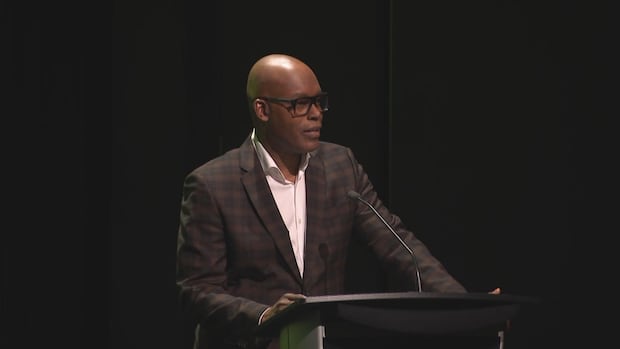Overnight, religious groups in Sherbrooke, Que., went from having access to only a single municipal venue for large gatherings — to all of them.
At a recent city council meeting, members struck down a 2012 policy forbidding the renting of indoor spaces owned by the city for religious purposes in the name of secularism. Those venues were limited to multi-purpose rooms, conference halls, auditoriums, gymnasiums and arenas.
The news comes as a relief to the region’s Muslim community, whose June holiday celebration plans became overshadowed by a large question mark when the convention centre they’ve relied on for years — the Centre de Foires de Sherbrooke — came under city management.
Despite there being an exemption in the policy applying to the city’s arena — which, at the time the policy was written, was rented by a Jehovah’s Witness group for an annual convention — councillors voted against granting a similar exemption to the Centre de Foires de Sherbrooke at their April 22 meeting.
The vote was narrow: eight to six. The outrage that ensued from the community was loud.
At the following municipal council meeting on May 6, multiple community members spoke out during question period. Among them was Hafid Agourram, the president of the Association Culturelle Islamique de l’Estrie (ACIE).
“We clarified to them this decision was foolish, it’s no good and we testified that the only place we had to celebrate twice a year is the Centre de Foires,” he said.
Quebec AM14:26Sherbrooke Muslims seeking solutions
Members of the Muslim community in Sherbrooke say they are shocked and upset about the decision of the city council to enforce a policy on secularism that prevents them from renting space at the local conference centre. Townships reporter Gordon Lambie explains the details of the situation.
The community, which is 9,000 strong in Sherbrooke alone, has outgrown the seating capacity of the city’s two mosques.
Earlier this year, one of those mosques hosted the end of Ramadan celebrations due to a scheduling issue with the Centre de Foires. Over 2,000 people showed up, said Agourram, and prayers had to be conducted in five different rotations.
“It was a mess,” he said. “Security problems, kids are going into the streets, cars, neighbours … not acceptable. But we had no choice.”
Amine Menadi, another member of the community, likened their celebrations to Christmas, saying the religious components are minimal.
“Even if people pray, we pray really fast. It’s really the party that we want. Don’t stop them,” he said.
Inside the municipal debate
There was a general feeling of discomfort among several city councillors as they faced the question of whether or not to create an exemption for the convention centre at their April 22 meeting.
The question came with a caveat: whatever decision they made would be re-assessed once a working committee currently studying how to apply secularism at the municipal level releases its recommendations later this year.
A lawyer was supposed to be present to answer any questions but was unable to come.
“I find it unfortunate that we have to decide this today. It would have been interesting to wait to obtain the report, but it doesn’t work with the timeline,” said city councillor Christelle Lefèvre. She ended up voting for the exemption.
Among the opposing voters, there was a consensus that the rules were the rules and needed to be followed as such. It’s not because an exemption had been granted once that they were going to do it again, said Danielle Berthold.
Sherbrooke Mayor Évelyne Beaudin, for her part, said the exemption granted to the arena always made her uncomfortable. She said the Centre de Foires received $15,000 from the religious events it hosts, so either the city would allow them to go forth or would essentially pay $15,000 for it to sit empty.
After hearing from the community when the council reconvened on May 20, it struck down the policy altogether. There was only one dissident, councillor Hélène Dauphinais.
“I would have preferred that we wait for the report from the provincial government because it’s much easier to open doors than to close them,” she said.
Council president Laure Letarte-Lavoie said she found the first-hand accounts from community members touching.
“These kinds of measures by the city, sometimes it’s really administrative and we don’t think about all that, but to not be able to hold gatherings in these venues in their own city, they experienced it as discrimination and rejection,” she said.
Councillor Fernanda Luz said that culture and religion are often intertwined.
“When we include everybody, it’s also a way to demonstrate our neutrality, there’s no favouritism,” she said. “We can either exclude everybody [or] include everybody.”
Jean-François Roberge, the minister responsible for secularism in Quebec, did not return a request for comment.





